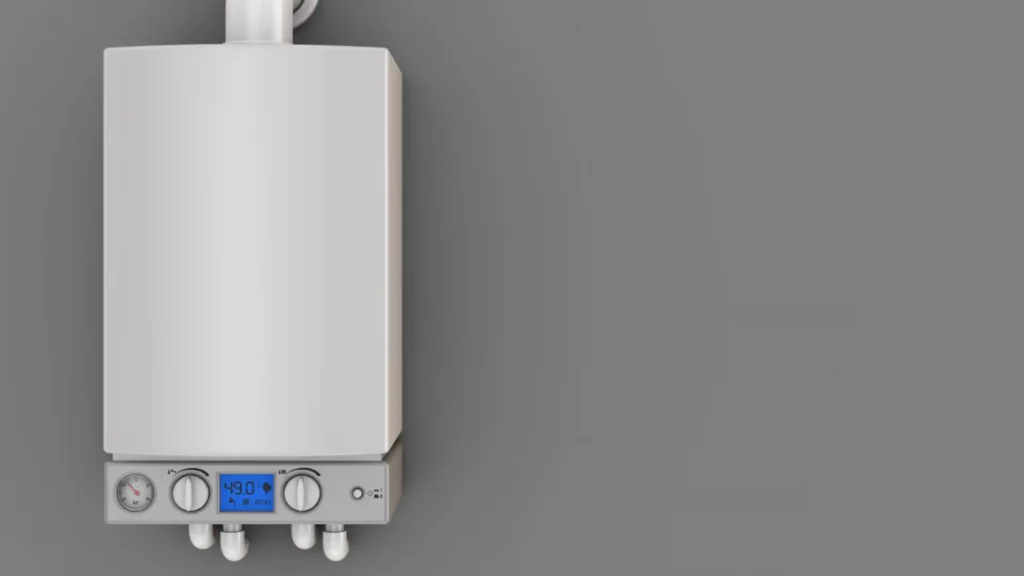In today's environmentally conscious world, energy efficiency is a top priority for homeowners looking to reduce their carbon footprint and save on utility bills.
Energy efficient water heater tankless are a sustainable solution for providing unlimited hot water while cutting energy waste. Traditional tank-style water heaters are inefficient and have a limited hot water supply.
Energy Efficient Instant Water Heater
When it comes to providing hot water efficiently and sustainably, an energy efficient instant water heater is the perfect solution.
Unlike traditional water heaters with storage tanks, these advanced units are designed to heat water on demand, which significantly reduces energy consumption and eliminates standby heat loss.
Read also our post on Energy Efficient Water Heaters
How Energy Efficient Water Heater Tankless Work
Energy efficient water heater tankless, also known as on-demand or instantaneous water heaters, work by heating water directly as it flows through the unit.
Unlike traditional tank-style water heaters, which store and continually heat a large volume of water, tankless units only heat water when you need it.
This process involves a few key components:
- Water Flow Sensor: When you turn on a hot water tap, the flow sensor detects the water flow and signals the heating elements to start.
- Heating Elements: Electric tankless water heaters use electric heating elements, while gas units use burners to heat the water as it passes through.
- Temperature Control: A thermostat regulates the desired water temperature.
- Heat Exchanger: The heat exchanger is the core component where water is heated by direct contact with the heating elements or burners.
- Hot Water Outlet: The heated water then exits the unit and travels to your faucet or shower, delivering hot water on demand.

Advantages of an Energy Efficient Instant Water Heater
- Energy Efficiency: The primary advantage of an energy efficient instant water heater is its ability to heat water quickly and only when needed.
- Space-Saving Design: These units are typically compact and can be installed in tight spaces, such as closets or under sinks. Their small footprint frees up valuable space in your home.
- Precision Temperature Control: Energy efficient instant water heaters often come with precise temperature control features, allowing you to set the water temperature to your preferred level with accuracy.
- Longevity and Durability: These units typically have a longer lifespan compared to traditional water heaters with storage tanks.
- Reduced Water Waste: Instant water heaters provide hot water immediately, reducing water wastage caused by waiting for hot water.
- Lower Energy Bills: With their high energy efficiency, energy efficient instant water heaters can significantly reduce your monthly energy bills.
- Customized Sizing: Energy efficient instant water heaters come in various sizes to suit different household needs.
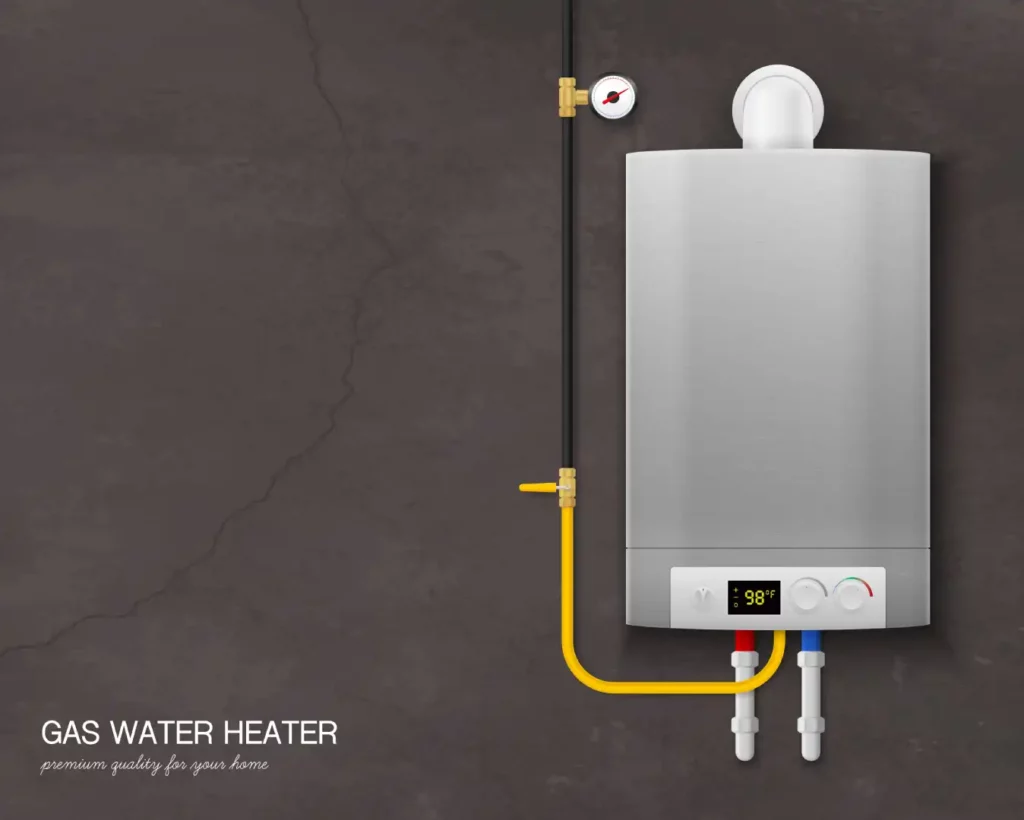
Types of Tankless Water Heaters
There are two main types of tankless water heaters: electric and gas-powered. Each has its own set of advantages and considerations in terms of energy efficiency:
Electric Tankless Water Heaters
Electric tankless water heaters are typically more energy-efficient than traditional electric water heaters with storage tanks. They are also easier to install because they don't require venting.
Gas-Powered Tankless Water Heaters
Gas-powered tankless water heaters are often more energy-efficient than electric models, making them a popular choice for larger households. They provide a continuous supply of hot water and are known for their reliability.
Choosing an Energy Efficient Tankless Hot Water Heater
When it comes to upgrading your home's water heating system, an energy efficient tankless hot water heater should be at the top of your list. These innovative appliances offer a range of benefits that not only enhance your daily life but also contribute to a more sustainable and cost-effective household.
- Sustainability: If you're looking to reduce your environmental impact, switching to an energy efficient tankless hot water heater is a significant step forward. By reducing energy consumption, these units help lower greenhouse gas emissions, making your home more eco-friendly.
- Endless Hot Water: With an energy efficient tankless hot water heater, you'll never run out of hot water.
- Longevity: These tankless units have a longer lifespan compared to traditional water heaters, often exceeding 20 years with proper maintenance.
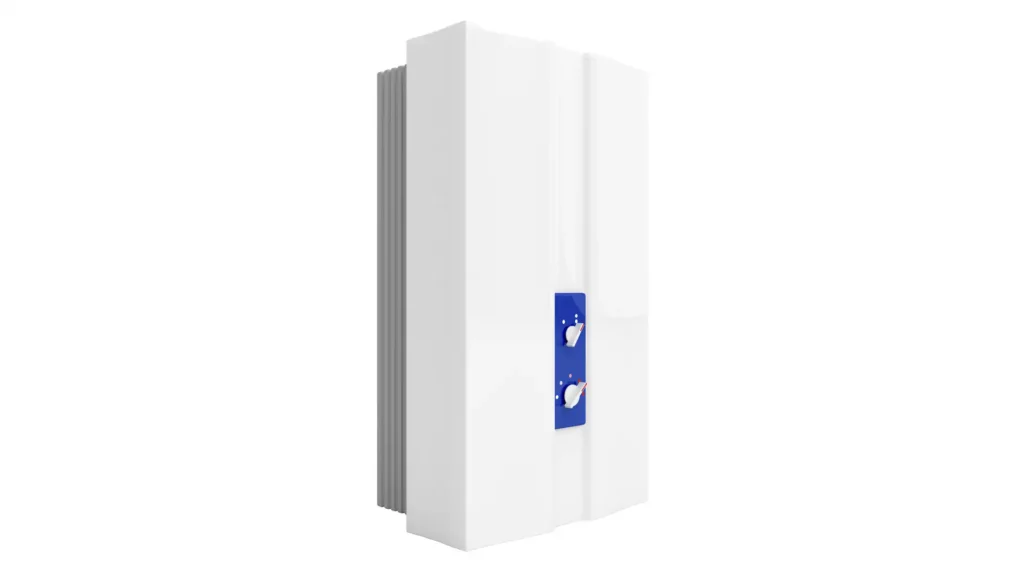
Energy Efficient Tankless Electric Water Heaters
When it comes to energy efficient water heating solutions, one option that stands out is the energy efficient tankless electric water heater. Let's explore why an energy efficient tankless electric water heater is an excellent choice:
- Electric Efficiency
An energy efficient tankless electric water heater is designed to maximize energy efficiency by heating water only when needed.
- No Combustion Byproducts
Electric tankless water heaters are a cleaner and eco-friendly choice for homes. Unlike gas-powered ones, they produce no greenhouse gas emissions, making them better for the environment.
- High Efficiency Ratings
Energy efficient tankless electric water heaters have high EF and UEF ratings, maximizing energy savings.
- Eco-Friendly Heating
An energy-efficient tankless electric water heater is not only efficient but also eco-friendly in its operation.
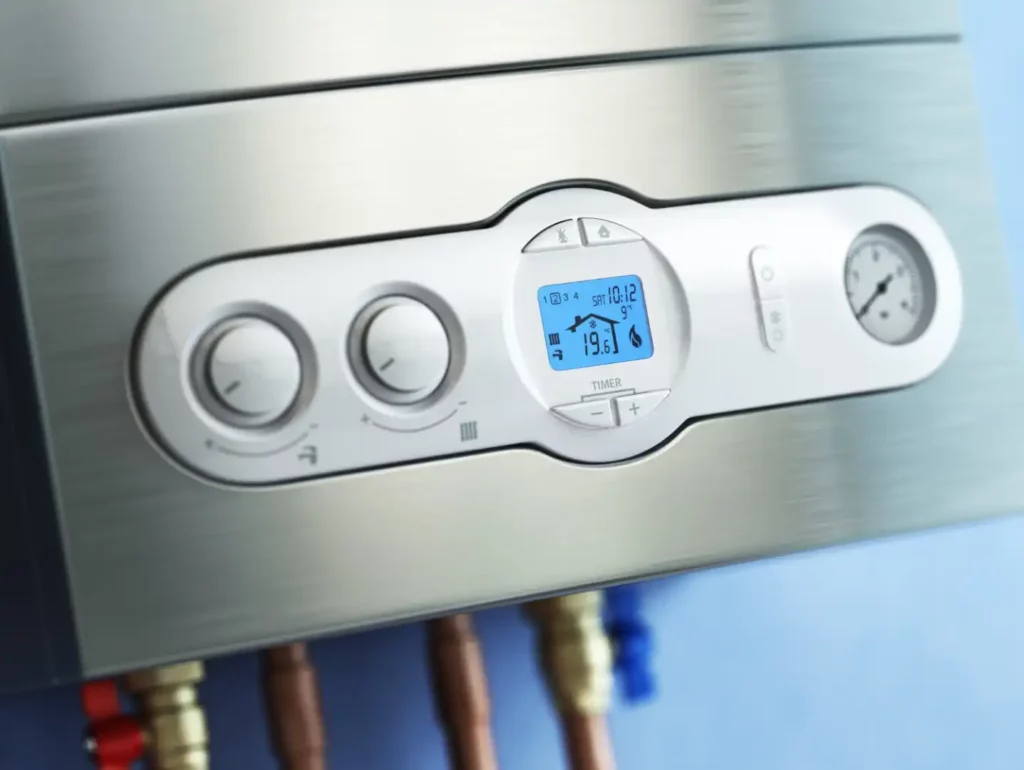
Regular Maintenance Tips
Proper maintenance is essential to ensure your tankless water heater operates efficiently and has a long lifespan. Here are some maintenance tips to follow:
- Electric water heater flushing the Unit: Over time, mineral deposits can accumulate inside the heat exchanger, reducing efficiency. Flushing the unit with a vinegar solution or a descaling agent can help remove these deposits.
- Cleaning Filters: Tankless water heaters have inlet water filters that should be cleaned periodically to prevent clogs and maintain water flow.
- Checking for Leaks: Regularly inspect the unit for any signs of leaks, especially at connection points, to prevent water damage.
- Inspecting Venting: If you have a gas unit, inspect the venting system for blockages or damage to ensure proper exhaust.
- Testing Pressure Relief Valve: The pressure relief valve should be tested annually to ensure it functions correctly.
Financial Incentives and Rebates
Investing in an energy efficient tankless water heater not only contributes to environmental sustainability but also offers significant long-term savings on your utility bills.
Governments and utility companies provide incentives and rebates to promote energy efficient appliances. It's important to consider these options to reduce the cost of installing a tankless water heater.
- Local Utility Rebates: Check with your local utility company to inquire about potential rebates or incentives for upgrading to an energy efficient tankless water heater.
- Federal Tax Credits: In some regions, homeowners may be eligible for federal tax credits when they invest in energy efficient appliances, including tankless water heaters.
- State and Municipal Programs: Various state and local government programs offer financial incentives for energy efficient home improvements.
These programs can vary significantly by location, so be sure to research what's available in your area.
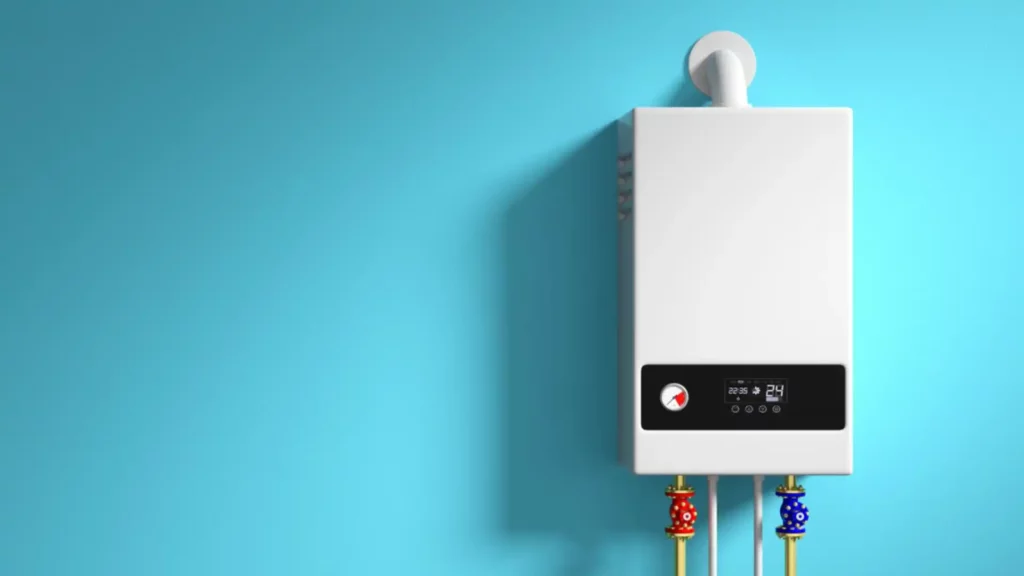
Environmental Impact and Carbon Footprint of Energy Efficient Tankless Water Heaters
The choice of water heater affects our carbon footprint and the environment. Traditional heaters waste energy and have a large carbon footprint. Energy efficient water heater can make a significant difference by reducing environmental impact.
- Reducaed Energy Consumption
The primary environmental benefit of energy efficient water heater tankless systems lies in their capacity to lower energy consumption.
Traditional water heaters keep a lot of water hot all the time, wasting energy. In contrast, tankless heaters only heat water when needed, saving energy.
- Minimal Standby Heat Loss
Energy efficient water heater tankless have an environmental advantage by eliminating standby heat loss.
Unlike traditional tank-style heaters, they don't continuously lose heat from the tank when hot water is not in use. This reduces energy consumption and carbon footprint.
- Extended Lifespan
Energy efficient water heater tankless systems have a longer lifespan, usually over 20 years, reducing the need for replacements.
This helps protect the environment by decreasing the amount of water heaters in landfills and lessening the environmental impact of manufacturing and disposal.
- Efficient Use of Resources
Energy efficient water heater tankless models optimize the use of resources. Compact and energy-efficient, these products support sustainability goals by conserving resources, lowering emissions, and reducing energy demand.
- Reduced Greenhouse Gas Emissions
To achieve a sustainable future, we must reduce greenhouse gas emissions. Tankless water heaters help by using less energy to heat water, resulting in fewer emissions.
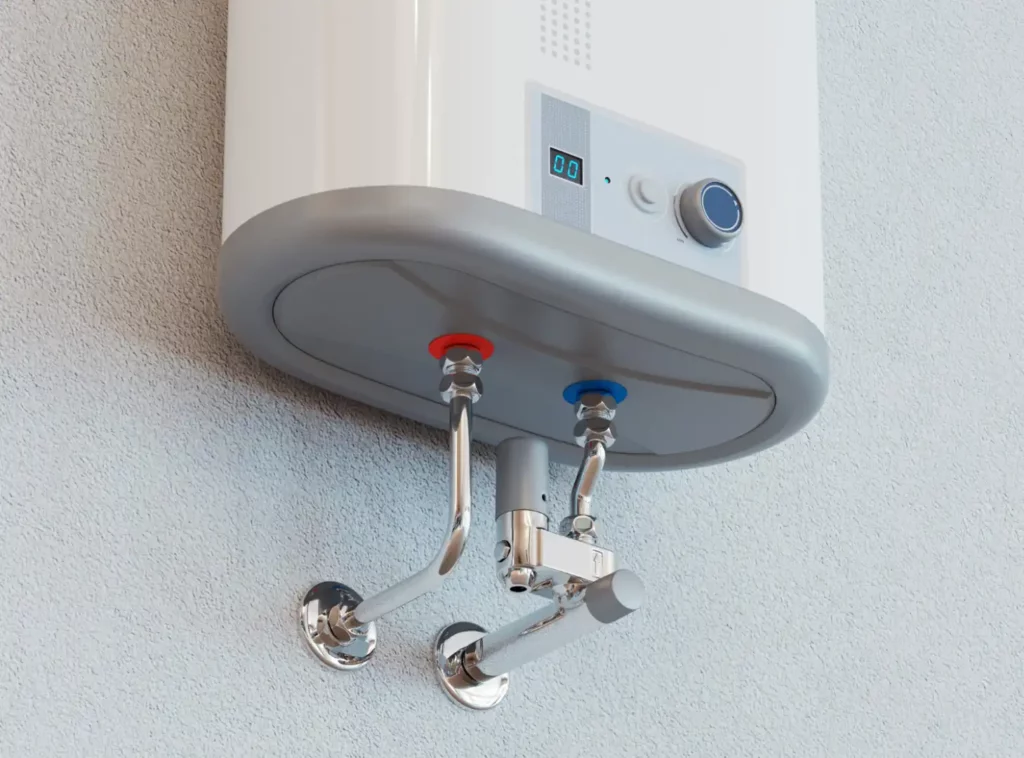
Future Trends and Sustainability for Energy Efficient Water Heater Tankless
As sustainability continues to be a driving force in our world, the future of energy-efficient water heating is promising. Here are some emerging trends and developments to keep an eye on:
- Hybrid Systems: Hybrid water heating systems that combine the benefits of tankless technology with heat pump technology are gaining traction.
- Renewable Energy Integration: The integration of tankless water heaters with renewable energy sources, such as solar panels, is becoming more accessible.
- Smart Grid Integration: Tankless water heaters may play a role in future smart grid initiatives, allowing for better management of electricity usage and load balancing during peak demand times.
- Increased Accessibility: As tankless water heater demand increases, manufacturers enhance products, reaching more consumers and promoting energy efficiency and sustainability.
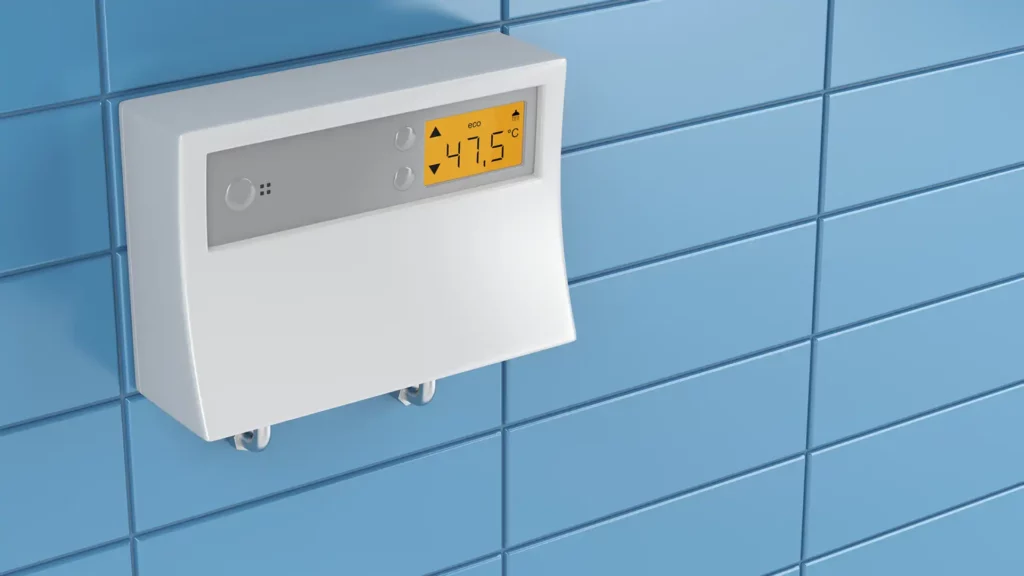
Energy Efficient Water Heater Tankless Frequently Asked Questions
1. Is a Tankless Water Heater Energy Efficient?
Answer: Yes, tankless water heaters are known for their energy efficiency. Unlike traditional water heaters with storage tanks, tankless units operate on an “on-demand” basis, heating water only when needed. This eliminates standby heat loss, which is a common source of energy wastage in conventional water heaters. As a result, tankless water heaters are more energy-efficient, ensuring that you only use energy to heat water when you actually require it.
2. How do tankless water heaters compare in terms of cost to traditional water heaters?
Answer: While the initial purchase price of a tankless water heater is typically higher than that of a traditional water heater, the long-term savings in energy costs often outweigh the upfront expense. With proper maintenance and energy-efficient operation, tankless units can offer substantial cost savings over time.
3. Can I install a tankless water heater myself, or should I hire a professional?
Answer: It is highly recommended to hire a licensed professional for the installation of a tankless water heater. Proper installation ensures safety, efficiency, and compliance with local building codes. DIY installation may lead to performance issues and safety hazards.
4. Do tankless water heaters require any special maintenance?
Answer: Yes, tankless water heaters require regular maintenance to ensure optimal performance. Annual flushing to remove mineral buildup is essential. Gas-powered units may need periodic inspection of the venting system to maintain safe operation. Always follow the manufacturer's maintenance guidelines.
5. Is a Tankless Water Heater More Energy Efficient?
Answer: Yes, energy efficient water heater tankless more than traditional models with storage tanks. They use an “on-demand” heating method, reducing energy consumption and saving energy in the long run. Despite the higher initial cost, their energy efficiency benefits and longer lifespan make them a sustainable choice.
6. Can a tankless water heater provide hot water for multiple fixtures simultaneously?
Answer: Yes, tankless water heaters are designed to provide hot water on demand. The capacity of the unit and the size of your home's gas line or electrical service will determine how many fixtures can be supplied simultaneously. Proper sizing is crucial for ensuring consistent hot water flow.
7. Are there any safety concerns with tankless water heaters?
Answer: When installed and maintained correctly, tankless water heaters are safe. However, gas-powered units require proper ventilation to avoid combustion issues. It's essential to follow all safety guidelines and have regular inspections to prevent potential hazards.
8. Are there any special considerations for using tankless water heaters in cold climates?
Answer: In colder climates, it's essential to choose a tankless water heater with a higher temperature rise capability to ensure adequate hot water supply during the winter months. Additionally, proper insulation of hot water pipes can help maintain water temperature.
9. Can I use a tankless water heater in conjunction with solar panels or other renewable energy sources?
Answer: Yes, tankless water heaters can be used in conjunction with solar panels or other renewable energy sources to further enhance their energy efficiency and reduce reliance on fossil fuels. Consult with a professional to ensure a compatible setup.
10. How do tankless water heaters contribute to reducing greenhouse gas emissions?
Answer: Tankless water heaters reduce greenhouse gas emissions by minimizing energy consumption and standby heat loss. Their energy-efficient operation helps lower the carbon footprint associated with hot water production, contributing to a more sustainable environment.
Energy Efficient Water Heater Tankless Conclusion
In conclusion, choosing an energy efficient water heater tankless is a personal and environmentally conscious decision that not only enhances your home's comfort and saves you money but also contributes to a greener future.
Tankless water heaters save energy and money, providing hot water instantly and reducing environmental impact. Choose the right one for your needs, considering type, size, and energy efficiency.
Professional installation and regular maintenance ensure maximum efficiency. Investing in tankless water heaters is a practical and eco-friendly choice, lowering energy consumption and greenhouse gas emissions for a sustainable future.
Source
https://www.energy.gov/energysaver/tankless-or-demand-type-water-heaters

